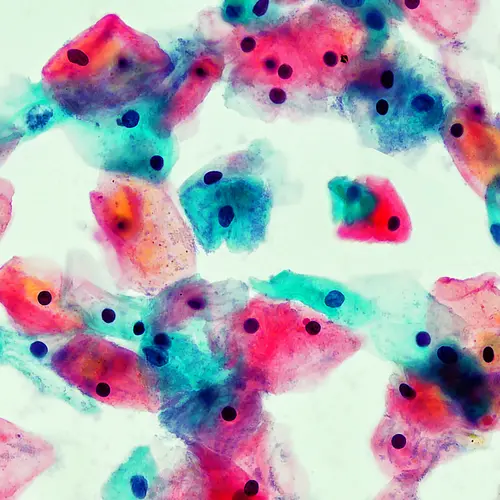In 2008, a group of published studies claimed that a treatment called Gc protein-derived macrophage-activating factor (GcMAF) had wiped out breast, colorectal, and prostate cancers. The studies were led by a researcher named Nobuto Yamamoto.
Experts questioned the research design and methods these studies used to make the bold claims. They found that the studies only looked at small groups of people and did not use traditional methods. Three of the studies were later retracted, or withdrawn from publication. This happens when a study is found to have errors, have copied other researchers’ work, or to have violated ethical codes.
Today, GcMAF isn't approved for cancer, and researchers aren’t investigating it as a possible treatment.
What Is GcMAF?
GcMAF is a type of immunotherapy, a treatment that revs up the immune system. It activates macrophages, which are white blood cells the immune system sends out to gobble up foreign cells like bacteria and cancer. Our bodies make the protein GcMAF to activate macrophages. But scientists think cancer cells release an enzyme called nagalase that blocks the making of GcMAF to protect themselves against attack. Some scientists think that adding GcMAF to our bodies will combat the power of nagalase and can destroy cancer cells.
There are three types of GcMAF. The one that can be found in certain places for sale is from bovine colostrum, which is the milk produced by cows after giving birth. It’s packed with antibodies, growth factors, and cytokines. Some research says it can help with immunity.
The Problems With GcMAF Cancer Research
A 1997 study tested GcMAF on mice with cancer. It found that GcMAF improved their survival from 16 days to 32 days. A few years later, Yamamoto’s researchers tested the treatment on people with breast, colorectal, and prostate cancers. They gave them shots of a tiny amount of GcMAF once a week. After a few months, all the patients were cured, according to the studies. Their cancers didn’t return from 4 to 7 years later.
These results sound impressive, but there were some big problems with the studies. For one thing, they were very small -- just eight to 16 people each. Everyone in the studies had already had standard cancer treatments like surgery, chemotherapy, or radiation.
Some researchers say it was hard to tell whether these treatments, or GcMAF, caused the cancers to shrink. A recent review of Yamamoto’s research says that they knew the other treatments weren’t working, which makes efficacy of GcMAF more evident. It also says all the focus was on the research papers that were retracted, but not on the team’s earlier research.
Also, doctors usually use imaging and lab tests to stage cancers -- to see how big the cancer is and whether it spread. Researchers that produced the retracted studies didn't do this. Instead, they looked at nagalase levels in blood. That’s not a proven way to check for cancer or to see if it has gotten smaller.
Finally, the researchers never tested whether GcMAF actually activated macrophages in the patients' blood. So they couldn't be sure that the treatment was working at all.
Three doctors from the Anticancer Fund, a nonprofit group that promotes cancer research, published a letter in 2014. They outlined many of the concerns with the studies. They found several mistakes in the studies' claims and said that its conclusions "make no sense."
What’s the Future of GcMAF and Immune Therapy for Cancer?
There have been a few studies of GcMAF to see if it can treat other conditions, including COVID-19, chronic fatigue, and multiple sclerosis. But it hasn’t been evaluated with the most reliable types of studies used to approve medications in the U.S. There are no clinical trials studying GcMAF as a potential cancer treatment.
But some experts have looked into harnessing the immune system through macrophages, the premise behind Yamamoto’s research. There have been studies on whether monoclonal antibodies or other drugs might help macrophages kill cancer cells. One clinical trial has studied a type of engineered macrophage called CAR-M and found that it may be an effective form of immunotherapy for solid tumors. We’ll need more studies to know for sure.
Are Online Sales of GcMAF Safe?
Although GcMAF still isn't an FDA-approved treatment for cancer, some retailers sell GcMAF supplements. These sales usually take place on social media sites to avoid government regulation.
Taking any supplement or medication that isn’t approved can be dangerous. Without FDA review, there’s no way for consumers to know if the supplement they’re using:
- Is exactly what the label claims it is
- Is safe
- Is effective for its stated purpose
- Has been manufactured with checks for safety and quality
It’s important to only take any medicine with the advice of your doctor. To avoid possible complications, side effects, or dangerous drug interactions, let your doctor know about any supplements or medications you take or are planning to take. This is especially important if you’re in treatment for cancer because taking medications that aren’t part of your treatment plan could make your drug regimen work less well or not at all.
When you buy medication, only use licensed pharmacies that can guarantee that the medicines they sell are regulated and genuine. You can find a list of legal and safe online pharmacies through the FDA’s BeSafeRX program.

